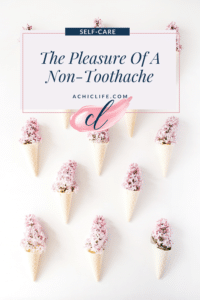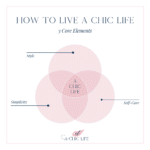I’ve discovered a wonderful secret for feeling happier, both in good times and bad. It’s not a secret in the sense it’s hidden. It’s a secret because we are highly predisposed not to notice it – we hide it from ourselves.
The secret is to appreciate the bad things that aren’t happening right now.
This may sound trite, but please stay with me, because there’s something remarkable here.
When something bad has happened, is happening, or might happen, we become utterly absorbed. We stew and fret and catastrophize. We ruminate and re-hash.
We can’t get that insult from last week out of our heads.
We’re livid because our internet is down again.
We’re obsessed with getting back our medical test results and can’t think of anything else.
All of which is understandable – though possibly avoidable (more on this to come in a future post – I’ve been studying the ancient Stoics).
But we give little or no attention to all the bad things that don’t happen. That aren’t happening. We invest no mental energy in feeling joy and gratitude for the myriad ways things could be bad – or far, far worse.
Thich Nhat Hanh puts it beautifully:
“When we’re having a toothache, we know that not having a toothache is a wonderful thing. Yet when we don’t have a toothache, we’re still not happy. A non-toothache is very pleasant.”
― Thich Nhat Hanh
A non-toothache is very pleasant. If you are currently toothache-free, take a moment to luxuriate in the tranquil contentment. How much peace and ease we have available to us when we revel in our many non-toothaches!
So, what if we make a point of noticing more of the things that are not bad, not awful, not causing us stress now?
- Not having a headache
- Not having a leaky roof
- Not having a tummy ache
- Not running late for something
- Not feeling angry
- Not living in a war-torn country
- Not having an assignment due tomorrow (think of all the times this caused us stress as students!)
- Not having a storm heading our way
- Not dealing with a gambling addiction
- Not being short of food
- Not having a cold
- Not being stuck in a traffic jam
- Not being persecuted
- Not having dropped our phone in the toilet
- Not being in a fight with a loved one
- Not waking to find the coffee machine malfunctioning (phew – what a relief!)
- Not having had a sleepless night.
The secret is to appreciate the bad things that aren’t happening right now.
Some of these are trivial, some terrifying. One or two may apply to you at the moment, but there will be many more that don’t.
Our experience of life is stained by the thoughts we have, colored by the realities we focus on. We enjoy more grace and serenity, greater peace and pleasure, if we can turn away from the bad in our lives and toward the bad not in our lives. Things could always be so much worse.
To cultivate greater grace and poise in the face of life’s adversities, I aim to:
- Accept the inevitable troubles that come my way, with grace
- Appreciate the countless delights and joys in my life – the comforts, friendships, minor pleasures like luscious chocolate and beautiful art, enormous benefits like a safe country to live in
- Acknowledge the bad things that aren’t happening right now.
Our experience of life is stained by the thoughts we have, colored by the realities we focus on. We enjoy more grace and serenity if we turn away from the bad in our lives and toward the bad not in our lives. Things could always be worse.
We feel such a sting in the presence of pain, we feed it with our thoughts. In the same way, perhaps we can learn to relish the peace of its absence. To appreciate the delicious pleasure of a non-toothache.
















Comments
Corinne
I found your wonderful post, Michele, when googling Thich Nhat Hanh's wisdom about toothaches, because I've currently got a humdinger of one. Thanks a bunch […] Read MoreI found your wonderful post, Michele, when googling Thich Nhat Hanh's wisdom about toothaches, because I've currently got a humdinger of one. Thanks a bunch of listing the wide swath of instances where the "non" presence of a malady or situation can be appreciated. Gratitude really does change the energy, including the chemistry in our bodies. Kisses & blessings Read Less
Michele Connolly
to Corinne
Thank YOU Corinne, for your lovely comment, and also for reminding me to apreciate the absence of the bad stuff. Sending you love. ♥️
Carolina
This really helped me change my perspective. I have been experiencing excruciating back pain, but now I am determined to think on the positives in […] Read MoreThis really helped me change my perspective. I have been experiencing excruciating back pain, but now I am determined to think on the positives in my life instead of focusing on my pain. Thank you! Read Less
Michele Connolly
to Carolina
Oh Carolina, I'm sorry to hear about your back pain. I've been studying the Stoics and I hope you don't mind if I share their […] Read MoreOh Carolina, I'm sorry to hear about your back pain. I've been studying the Stoics and I hope you don't mind if I share their approach to dealing with pain, in case this is something helpful for you. 1. Carefully distinguish what’s directly under your control from what isn’t 2. Compare the consequences of struggling versus acceptance 3. Remember that it’s not events that upset us but our judgements about them 4. Practice letting go of the inner struggle and actively accepting painful sensations. You can read more here: https://classicalwisdom.com/philosophy/stoicism/marcus-aurelius-stoicism-and-pain/ Kind wishes, Michele Read Less